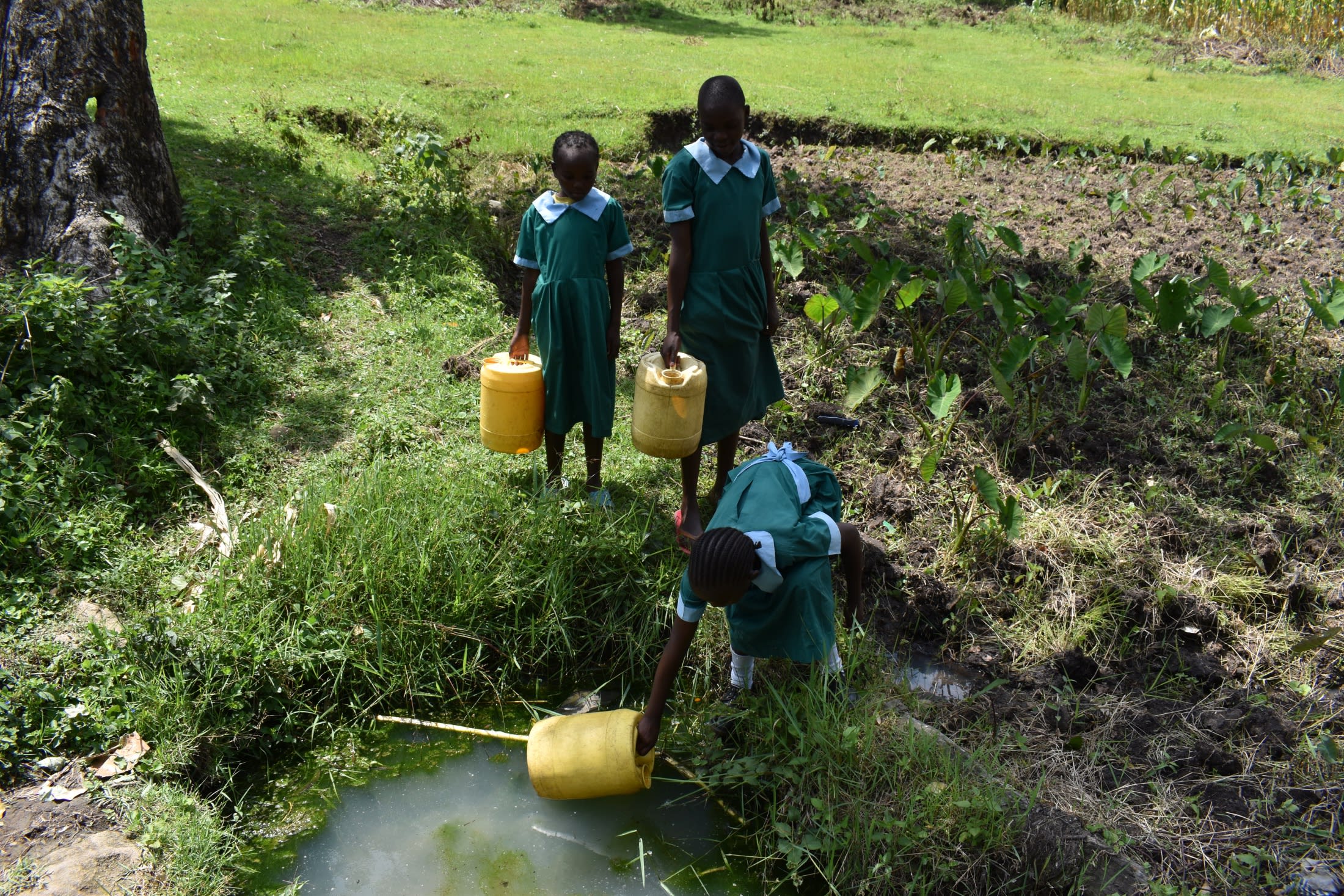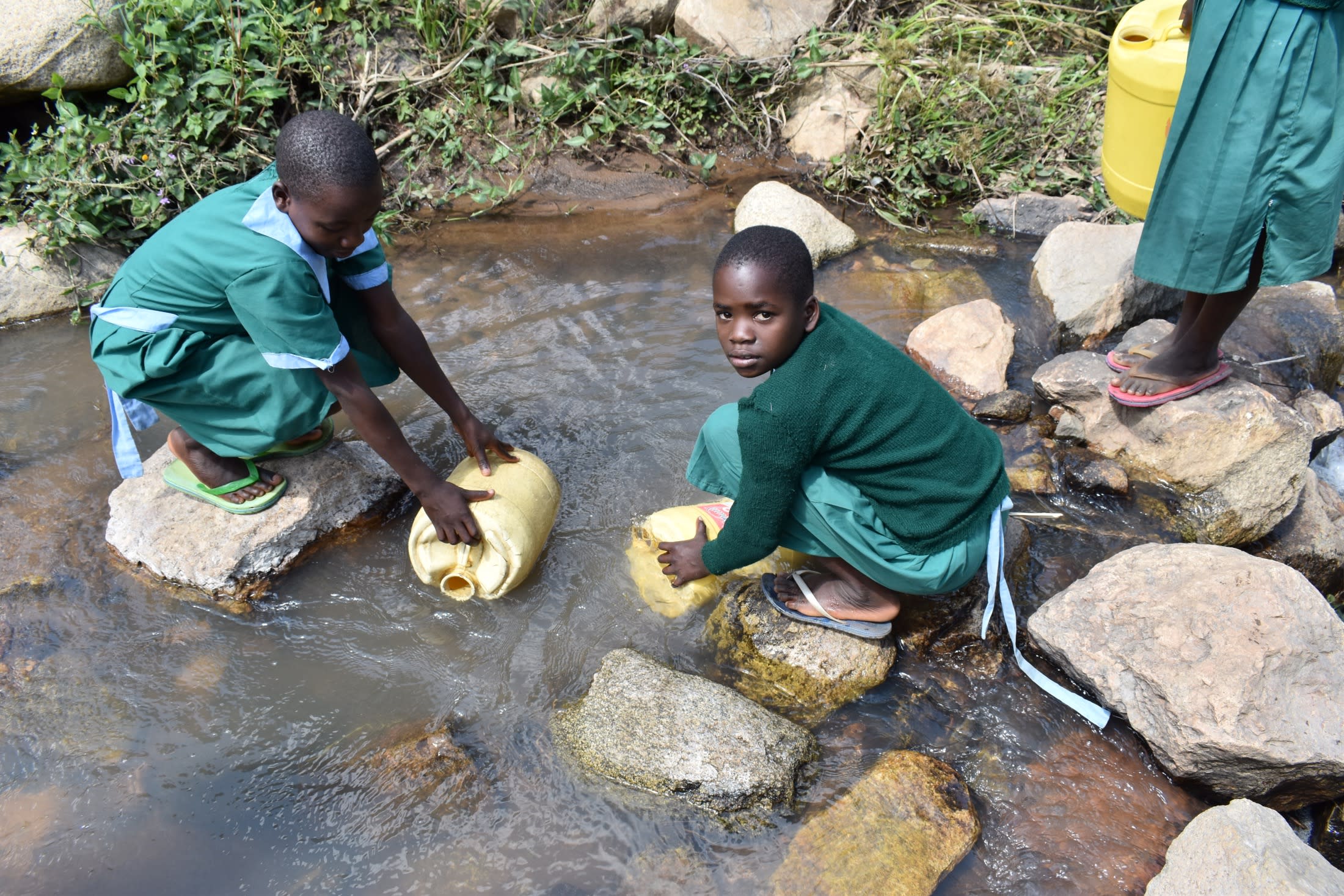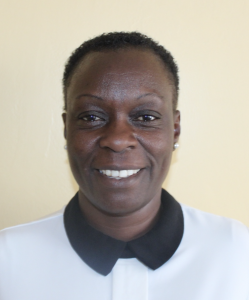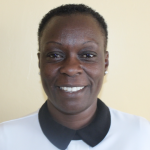Students who attend Misimo Primary School collect water either from an unprotected spring or a nearby stream on their way to school to have drinking water throughout the day. The school does not have a way to provide the students with water. Sadly, both water sources are open to contamination and cause students to get sick and miss valuable learning time.

The area around the spring is very bushy, which is a perfect place for dangerous snakes to hide, and the water is greenish in color. The spring is especially difficult to access when it rains because the grass becomes slippery around the collection area.
To collect water from the area stream, students must stand on rocks and scoop water up with their buckets while balancing on the rock. It is an accident waiting to happen.

Elizabeth M., age 12, a student at the school, commented, "We take dirty water. After taking it, you feel stomachache, which forces us to miss classes and seek medication."
Drinking contaminated water causes waterborne illnesses such as diarrhea, stomachaches, and typhoid. Children are missing school, and families are forced to use their limited incomes to seek treatment, which is difficult for those struggling to survive daily.
"We are always sick of typhoid. It is expensive to treat this disease. My first daughter got typhoid, and the drugs were very expensive to buy. It took a long [time] to heal," shared Were Kutialo, age 50, and the school's Head Teacher.
This school needs a reliable, safe, clean water source to allow students to remain healthy and concentrate on their studies.
What We Can Do:
New Well
We conducted a hydrogeological survey at this school and the results indicated the water table beneath it is an ideal candidate for a borehole well. Due to a borehole well's unique ability to tap into a safe, year-round water column, it will be poised to serve all of the water needs for this school's large population, even through the dry months.
The school will help collect the needed construction materials such as sand, rocks, and water for mixing cement. They will also provide housing and meals for the work team, in addition to providing local laborers. We will complement their materials by providing an expert team of artisans and drilling professionals, tools, hardware, and the hand-pump. Once finished, water from the well will then be used by the school's students and staff for drinking, handwashing, cooking, cleaning, and much more.
Handwashing Stations
There is currently nowhere for students to wash their hands after using the latrines or before eating lunch, let alone the water to do so.
The student health club will oversee the two new handwashing stations we will provide, and make sure they are kept clean and in working condition. The club leaders will fill the handwashing stations with water daily and make sure they are always supplied with a cleaning agent such as soap or ash.
VIP Latrines
We will construct two triple-door latrine blocks using local materials that the school will help gather. Three doors will serve the girls and three doors will serve the boys. All of these new latrines will have cement floors that are designed to be easy to use and to clean. And with a borehole right on school property, there should be enough water to keep them clean.
Training on Health, Hygiene, COVID-19, and More
We will hold a one-day intensive training session with students, teachers, and parents. This training will cover a wide range of topics including COVID-19 symptoms, transmission routes, and prevention; personal and environmental hygiene; and the operation and maintenance of the borehole, latrines, and handwashing stations. There will be a special emphasis on handwashing.
Our team of facilitators will use a variety of methods to train, including participatory hygiene and sanitation transformation, and asset-based community development. We will initiate a student health club, which will prepare students to lead other pupils into healthy habits at school and at home. We will also lead lectures, group discussions, and provide illustrative handouts to teach health topics and ways to promote good hygiene practices within the school including handwashing and water treatment. We will then conduct a series of follow-up trainings before transitioning to our regularly scheduled support visits throughout the year.
We and the school strongly believe that all of these components will work together to improve standards at this school, which will help lead to better student academic performance and will help unlock the opportunity for these students to live better, healthier lives.

 Borehole Well and Hand Pump
Borehole Well and Hand Pump
 Rehabilitation Project
Rehabilitation Project







































